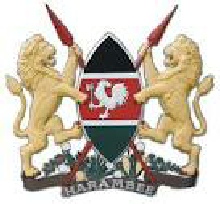

















































Contacts +254 726 603 528
+254 041 231 8854
+254 725 32 86 24
info@shirikishopartykenya

Shirikisho Party of Kenya, P.O. Box 84648-


Governance
 The problem.
The problem.
The current governance system is one of a central government where power
is concentrated at one focal point. The system is part of our colonial heritage that
was hegemonic, patronizing and exploitative. Although we negotiated for a federal
system at independence, the colonial masters, influenced their protégés to revert
back to the unitary system for purposes of continuing with their hold to the affairs
of the Republic. Decision making is from top to bottom and is commonly by a few people.
It is the manifestation of representative democracy.
The Provincial Administration, which replaced the Regional Governments, is serving the President rather than the people. It is through the said administration that the manipulation of power by the President is manifested. Examples are such as the abuse of human rights (civil, economic and political) illegal land allocation, misappropriation of public funds, corruption, interfering in election process et cetra.
The Presidents manipulation of power is also manifested in the civil service. It merely serves the President and not the people. Recruitment in the said service is done along tribal lines. This has led to the emergency of nepotism ad tribalism at the expense of merit and equitable regional distribution. The service lacks motivation due to poor remuneration, unequal salary and other benefits leading to poor delivery of services in the public sector. In many instances there have been industrial action and frequent strikes within the service. For example teachers employed by the Teachers Service Commission, public university lecturers, ministry of health employees and other civil servants have engaged in strikes openly airing their grievances.
The Local Government system that functioned well under the colonial leadership by providing housing, health, water, education, social amenities and sewerage and garbage facilities to the people is run down. They have become insignificant and burdensome due to the privatization and liberalization of social services. Their functions are eclipsed or taken away by the private sector. This has led to the high cost of essential services and sometimes the total collapse of provision of such services. They cannot operate independently as they are under absolute control of the local government minister.
Parliament has ceased to be a representative body of the people. It has as well become a tool of manipulation by the President. It passes laws and policies at the whim of the President. Currently it’s independency has not made it accountable to the people. It has merely shifted the exercise of absolute arbitrary power from the President to itself. This is why Parliament can increase the salaries of its members without safeguards either from the constitution or the people. Failure by the constitution to provide a sealing on cabinet positions has allowed the President to exploit parliament. He has powers to appoint any number of ministers from members of parliament. For example there are currently 75 cabinet ministers and their assistants. This is more than a third of parliament. The President is therefore capable of controlling parliament through this constitutional omission. In addition the constitution does not provide restrictions on the President on how the appointments should be done. It again allows the President to poach ministers from the opposition Parties without structured consultations with them. This has greatly undermined political Parties and multiparty democracy.
The Judiciary has over the years has failed to perform it’s duty of checking the
illegal and excessive powers of the President. The recruitment and appointment of
it’s officers and budgetary support is under the influence of the President. This
has denied it independency and efficiency. The problem has been compounded by the
absence of a well defined Supreme Court whose prime responsibility is to ensure compliancy
of all public offices with the constitution and provide legal guidance to it’s interpretation.
In addition there is lack of enough personnel and facilities to handle the ever-
Apart from the manipulation of power by the President another major problem in matters
of governance is associated with the role played by political parties as institutions
of governance. The current political parties lack ideological, structural and policy
framework. They are devoid of the will to implement their policies as espoused in
their manifestos when they from government. For instance, The Narc Government when
campaigning for the 2002 general elections and formed the government they dumped
and abandoned the party’s guiding principles and formulated government policies base
on opinions civil servants and technocrats. In addition the lack of proper political
Parties structures has contributed to their failure to participate in governance
effectively. The Provincial Administration has taken over the role that should have
been played by the Party officials at different governance levels. For example during
national holidays or other public functions organized by the government it is the
Provincial Administration that coordinates, conducts and controls the said functions
instead of the ruling Party officials. The only role currently used by political
Parties is to be used as forums for nomination of candidates for purposes of contesting
national elections. This has been brought about by the absence of a law governing
the registration, administration and management of political Parties. The said law
should also provide for an independent institution to carry out the duties proposed
under the said law in place of the office of the Attorney General that falls under
the Executive. Further inadequate finances have crippled the functioning of political
Parties. Personalities within political Parties who have financial influence have
taken over the administration and management of political Parties at the expense
of Party officials.
In a country where ethnicity, nepotism, religious animosity and regionalism are the order of the day a centralized governance system results in poor service delivery( due to red tapes and undue bureaucracy), marginalization of minority groups, unequal distribution of resources, poor economic growth, inefficient civil service, despair and hopelessness by the people and entrenchment of corruption as a way of life.
Policy Vision.
Shirikisho envisions a federal governance system where power is devolved
to fourteen (14) Regions in order to expand decision making from the current representative
fashion to a more participatory and consultative form. This will enhance democracy
by involving a wider number of the people in decision-
Action.
Shirikisho will:
1. Work for a new constitution that guarantees devolution of powers, probably in the model suggested by the Bomas Draft.
2. Adopt a federal system of governance molded on principles of social justice and participation as well as consultative democracy.
3. Implement reforms in the Judiciary, Civil Service and Parliament.
4. Reduce the rule of National Government to include National Security, International relations, being a symbol of national identity and unity, monitoring and harmonization of the development process and equalization across various Regions.
5. Ensure that each Region contributes 25% of its revenue collection to national treasury.
6. Ensure it promulgates a constitutional provision that clearly states the minimum and maximum size of the Government at all level.
7. Enact legislation to enable the state implement a federal system of government touching on all issues such as revenue collection, service delivery, inter relation and harmonization between the levels of governance among others.
8. Enact a Political Parties Bill that will ensure political parties play their role in governance.
9. Safe guard, protect and empower political Parties in order to protect multiparty democracy.